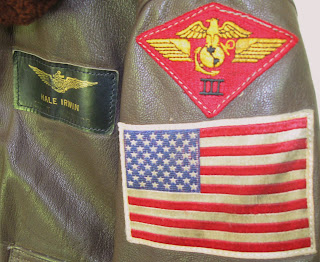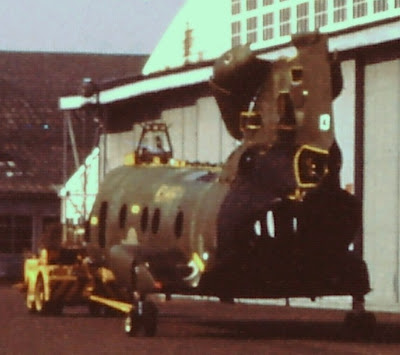 |
| Frank Irwin, Infantry, 10th Mountain Division, November 1943 |
Frank was a typical man of the Greatest Generation. He seldom or never talked about himself or his past. What I know I have gathered from various conversations or stories from my Mom, Josephine, or an anecdote or two from him.
He graduated from Dartmouth College in 1937 and soon earned a PHD in English from Princeton. He wrote his thesis on John Milton, arguably the best 17th Century English author. Somewhere in these younger years he worked in the railroad yards keeping track of railroad cars and their loads. I am not exactly clear of his activities during World War II. While he was training, teaching and in combat my Mother lived in base housing at Edgewood Arsenal in Maryland with my aunt and their young children. My brother, Terry, was one of 4 cousins living in that household. In 1945, at the end of the war, I was born at Johns Hopkins Hospital in Baltimore.
 Dad and many of the Dartmouth men at that time were recruited into the 10th Mountain Division because of their familiarity with skiing. He was sent to Camp Hale in Colorado for training. This camp was in a valley surrounded by several mountains where all the coal smoke from their stoves settled and polluted the air. My understanding is the bad air brought on a relapse of TB. Because of his health problem Dad was transferred out of the 10th Mountain Division. All he ever said to me is that if he had not been transferred the likelihood of my birth would have been very doubtful because of the horrible losses this unit took fighting heroically through Italy.
Dad and many of the Dartmouth men at that time were recruited into the 10th Mountain Division because of their familiarity with skiing. He was sent to Camp Hale in Colorado for training. This camp was in a valley surrounded by several mountains where all the coal smoke from their stoves settled and polluted the air. My understanding is the bad air brought on a relapse of TB. Because of his health problem Dad was transferred out of the 10th Mountain Division. All he ever said to me is that if he had not been transferred the likelihood of my birth would have been very doubtful because of the horrible losses this unit took fighting heroically through Italy.At some point I know he taught English to Spanish speaking troops in Puerto Rico.
Somewhere he saw action in North Africa. This is something he never discussed or talked about. All he ever said in reference to this was his hearing problems were caused by artillery barrages. I do not know if he was the sender or receiver of this arty. I believe this experience to be such that he did not want to discuss it, or for that matter, ever remember it.
 |
| Dad, President Johnson, Secretary of State Dean Rusk |
My father as, many of the men of that time, were motivated by god, duty and country. Unfortunately, the responsibility and stress of his duties did not leave him much time or energy to give in the family department. At the end of his military career Dad worked for the United States Information Service and later became a Foreign Service Officer and served in various capacities in U.S. Embassies in Scotland, Honduras and Costa Rica. He was a Latin American Advisor for Adlai Stevenson at the United Nations. He later served as Senior Watch Officer at the State Department in Washington. In this position he was the first State Department contact when crises exploded around the world.
Throughout his life Frank was active in his church. converting from Catholicism, he was confirmed an Episcopalian in the Washington National Cathedral.
Let me recount a few anecdotes I recall hearing about.
- Just prior to the Bay of Pigs invasion of Cuba there was an Organization of American States meeting scheduled to be held in San Jose, Costa Rica. President Kennedy would attend and their would be discussions of how to deal with the new revolutionary in Cuba, Fidel Castro. Dad was to carry a briefcase of secret and classified documents to the meeting. Of course he was scheduled to fly directly to San Jose from Miami. Unfortunately The LACSA Airways DC-6 had an engine problem and the pilot announced they would be making an emergency landing in Havana. Dad took the briefcase into the lavatory and removed the most dangerous documents and slid them under his shirt and suit coat. Passengers deplaned and waited for several hours while repairs were made to the aircraft. Upon becoming airborne it was obvious that Castro agents had rifled through the documents left as a decoy. We always wondered what would have happened if Castro had found the secret documents beneath Dad's shirt.

- While stationed in Costa Rica my father and a colleague, Mr. Bill Jones, who supposedly was the U.S. Agriculture Attache' took a tour by jeep through northern Costa Rica into Nicaragua. This was at a time when Nicaragua feared an invasion or infiltration of the country by Castro. It just so happened on their ride that they met a local town leader who invited them in for lunch. They got to know each other. Several days later while driving back on these back roads or trails Dad and Mr. Jones were ambushed by Nicaraguan militia. Their plan was to hang them! They were marched down the path to a tree. attempts to show U.S. Identification were thwarted by the young Nicaraguans - they thought Dad was reaching for a pistol. However, as fate would have it, the Nicaraguan gentleman that fed Dad and Bill several days earlier came along and explained that these two strangers were Americans not Cuban spies!
Wherever we were stationed we were never sure who did what in the embassy. A question of what does Jimmy's dad do would often answered with the euphemism, "he works upstairs." As far as I know my Dad was a regular Diplomat representing the United State to foreign countries.
Frank retired from the State Department when I was in College. Mom and Dad moved to Middlebury Vermont where he became Director of Admissions at Middlebury College. In the years to come he served as President of both Lyndon and Castleton State Colleges. He finally retired for real and moved, with his new wife to live near Dartmouth, the college he loved so much. He actually taught a course on John Milton for the English Department in his late years.
Unfortunately, my father succumbed to the great fog of Alzheimer's. I lost my Dad about 3 years before he died on June 30, 1992 - one day before his 78th birthday. A scholar and a true intellect no longer recognized his son. I regret that I did not have those years to get to know him better and learn more details of his past.
I believe that the values of my father have influenced who I am more than I ever realized until recently. I inherited his honor and dedication to service and duty. Never one to look for a job where the goal was making money; I have always been drawn to work that served others.
HAPPY BIRTHDAY, DAD. I miss you.































